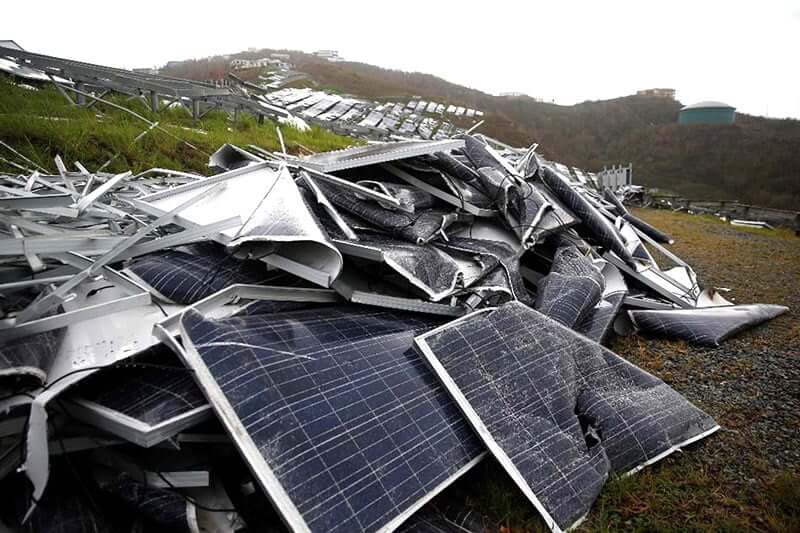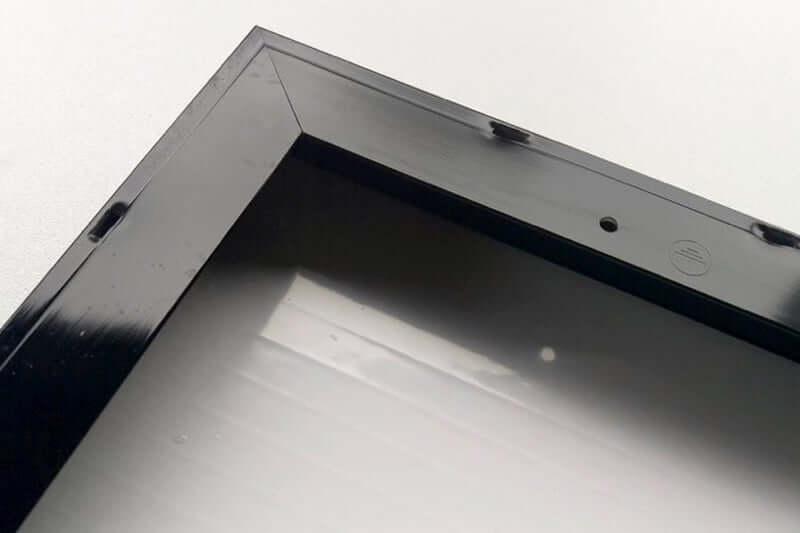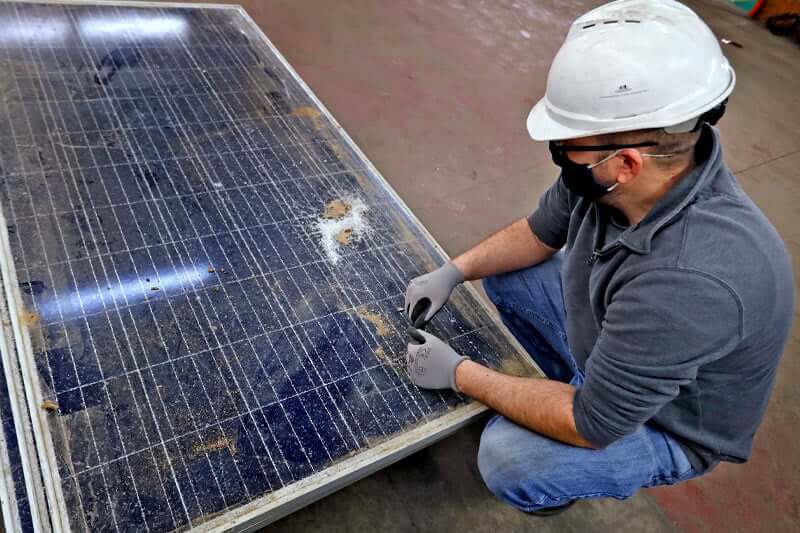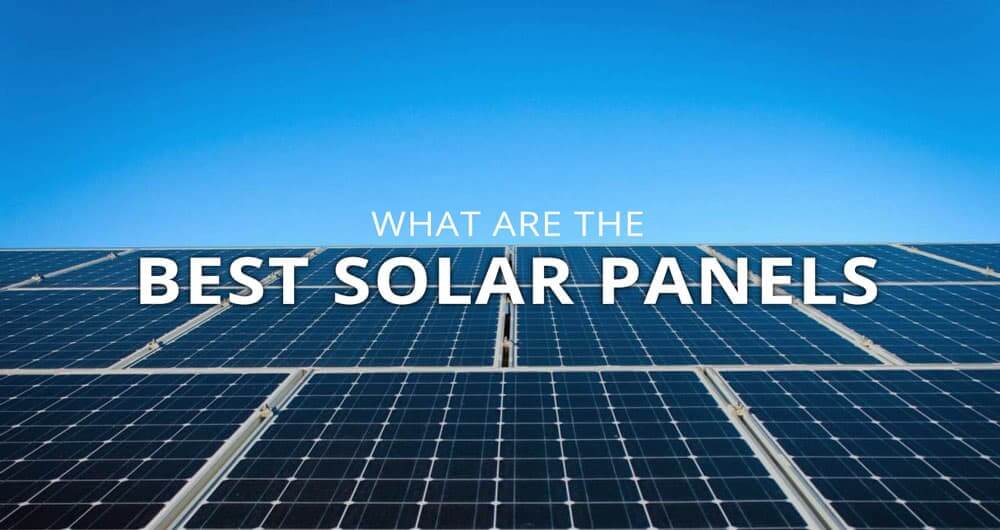Home Can Solar Panels Be Recycled?
Can Solar Panels Be Recycled?
A considerable amount of energy goes into making solar panels, which involves getting the raw materials, the production process itself, and then moving them to where they’re needed. Therefore, looking at it from an environmental standpoint, recycling them makes perfect sense.
Solar panels can be recycled, but we are in the early stages of opening dedicated recycling plants. The panels are made of silicon, aluminum, copper, plastic, and rubber, which are all recyclable. State governments are currently giving grants of up to $10 million to companies looking to set up solar panel recycling.
This article discusses why you need to recycle old solar panels to make them closer to carbon-neutral, what parts can be recycled now, and where this is all heading in the future.

Table of Contents
ToggleWhy you should to recycle solar panels
The trend of using solar panels as an alternative source of electricity spread like wildfire back in the 2000s. People were skeptical about switching from a trusted source and depending on sunlight to provide power.
However, as more people saw how efficient solar panels were and how much they could save on electricity bills, they became more amenable to using them. Since the panels help reduce their carbon footprint, more people are more open to using them.
Now, everyone seems to be switching to solar panels, even if they remain grid-tied. But as more people use them, it creates another concern: what to do with all the panels when they reach their full life expectancy.
A driving need for proper disposal
Research shows that Australia may accumulate up to a million tonnes of waste from using solar panels by the year 2047. The number may significantly increase as more people switch from conventional electricity to solar panels and those already using them prematurely upgrade their systems.
These panels are toxic due to the chemicals like lead in them. They assist the cells in converting sunlight into electricity, so they are vital to manufacturing the panels.
However, they create an environmental problem when they leak from old and abandoned panels and become hazardous waste. Consequently, recycling them is crucial to prevent damage to the environment.
Recyclable parts of a solar panel
If you have ever wondered whether a solar panel can be recycled, the answer is in detail. Some parts are more amenable to recycling than others, but licensed solar panel recycling plants know how to separate the parts and do the job. Fortunately, more than 90% of a solar panel is recyclable.
A solar panel comprises aluminum frames, glass, silver paste, polymers, copper, silicon, and other materials. But the mentioned parts are the most recyclable and highly valuable, especially glass and silver paste. Some of them are reused for other solar panels, while the rest goes to other uses.

Recycling solar panels: is it worth the cost?
Recycling old and used-up solar panels is worth the cost. As mentioned before, solar panels contain toxic chemicals that may leak into the environment and cause irreparable damage if left unchecked. Therefore, finding a permanent and useful way to dispose of the panels is crucial. However, what is the cost to you, the bill payer?
The primary downside is that there is a clear-cut process and procedure for recycling solar panels yet. In other words, there are no regulations that make the process easy. You may be tasked with finding recycling plants yourself and covering the cost.
This process may change in the future, but it is still in the works today. As a result, it may be inconvenient and expensive.
There are other ways to dispose of old solar panels apart from recycling. So, while recycling may be an excellent disposal method, you may want to consider other options if it eats too deep into your pockets and is an inconvenience.
Alternatives to disposing of old solar panels
There are several ways to dispose of old solar panels without going through the pain of recycling them. If you are not open to bearing the extra cost of recycling them, even after years of use, consider one or more of these options.
Use solar installers
Consider speaking with your solar agent or contractor about properly disposing of old panels. Some installers are open to taking them off the hands of their clients and recycling them for future use. Therefore, find out if your contractor does that or knows someone else who does if they are not open to it.
Note that many installers do not accept old panels and leave the task of disposal to customers.
Sell the old panels
This method is excellent for making money while properly ridding yourself of waste. If your panels still have some life in them and are still useful to some extent, consider selling them to interested parties.
Some people are even open to buying solar panels past their life span, so they do not have to be functioning before you can sell them. People have various valuable purposes for these panels.
However, if they are nearing the end of their life span but are still functional, someone else may benefit from using them. Since you may be installing new panels, it helps keep the old ones from landfills, where they may do more harm than good.
Trade with a scrap dealer
Another excellent way to dispose of old solar panels is to trade with a scrap dealer. See if they have items that may be useful to you and swap them with the panels. If they do not have such things, you may give them the old panels free of charge.
A scrap dealer may not have an immediate use for the old items, but there are specific parts that may be worth some money. Therefore, they take the useful parts and properly dispose of the rest. The good news is that the disposal cost is not on you.
Use e-waste disposal channels
Australia has an e-waste disposal program in many states except Victoria. You will pay more for the job, but you do not have to worry about doing the job yourself. The e-waste disposal company will take the old solar panels to the right sites for proper disposal.
However, this method is slowly phasing out, especially concerning disposing of toxic materials. These disposal programs do not have other areas to dump the waste except landfills. So, the country circles back to the problem of environmental damage. In 2019, Victoria banned the program due to this problem, and other states are following suit.
Upcycle the old panels
Your camper may be one way to dispose of old panels with some life in them. If you have an RV that needs an alternative source of energy, consider turning the old panels into a solar power system for the RV. It may take a few more years before you have to dispose of them completely, so you may put them to some use.
Other ways to upcycle the panels are to use them for furniture such as a small table or dog house cladding. You can also use it as part of the materials for building a greenhouse or insulation for your home, and it is an excellent choice if you are eco-friendly.
Can other components of the solar power system be recycled?
You can recycle several other components of a solar power system. Take inverters and batteries as examples. You will find recyclers in Australia who are willing to take old inverters off your hands for recycling purposes.
They may not pay you for the scrap, but you will not have to pay for the recycling job from your pocket. Ask about existing e-waste programs or recycling centers within your locality to find the most suitable option.

Batteries
Batteries are also recyclable; designated waste management centers and recycling plants handle them. It is crucial to recycle batteries using the proper channels because they contain toxic and dangerous chemicals. Throwing them out into landfills is not an option, so recycling them is an ideal way to dispose of them.
Batteries typically contain lithium-ion, which severely affects carbon emissions if left unchecked. The current estimation of waste resulting from the disposal of lithium-ion batteries will reach about 100,000 tonnes in a little over a decade. This number may increase if the number of people currently disposing of batteries, 2%, does not increase. It is already a danger to the environment without increasing the amount of waste.
What the Government is saying
There is a prevalent concern surrounding recycling solar panels and other solar power system components. The rate at which Australians use and dump panels is higher than the available resources and channels to recycle them.
According to the government, only a tiny percentage of solar panels – 17% – are recyclable. Australia does not currently have the means to recycle about 83% of a typical solar panel.
Inverters and batteries are easier to recycle through the e-waste system. Authorized recyclers can extract valuable materials from them for future use, so they are not much of a concern as solar panels.
Is recycling solar panels difficult?
Recycling solar panels is an intricate and difficult process. The complex structure and design of a solar panel make it a challenging task to recycle. It is not that the manufacturing materials are hard in themselves. The difficulty lies in the combination of several materials in one product. That is why the process is best in the hands of professionals.
A recycler must separate the individual materials before starting the process. They cannot crush all the materials together in one place, damaging expensive and rare ones beyond salvaging. So, they must carefully remove each material and recycle it using individual processes. That way, they can salvage valuable parts.
Recycling processes
There are three primary ways to recycle a solar panel. One is through a chemical method, two is through a mechanical process, and three is through reuse. The chemical recycling method goes to the molecular level of the solar panel and uses reactions to separate the materials.
The mechanical method is the physical breakdown of the panels to separate the parts. It needs precision and may take more time, but this method is usually the go-to for many recyclers. Reuse is another use where you can put old solar panels, as discussed in this article.
Table of Contents
Toggle




